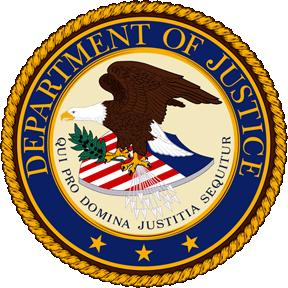Justice Department: Fighting Discrimination against People Living with HIV

The U.S. Department of Justice (DOJ) is responsible for enforcing Federal laws and ensuring fair and impartial administration of justice for all Americans. DOJ’s Civil Rights Division works to eradicate discrimination against people with disabilities, including those living with HIV or AIDS, by enforcing the Americans with Disabilities Act (ADA). The ADA prohibits discrimination by employers based on disability, and requires state and local governments and public accommodations, like doctors’ offices, medical clinics, hospitals, and other health care providers, to provide people with HIV equal access to goods, services, facilities, privileges, accommodations, and advantages.
As part of its ongoing ADA outreach efforts, the Department has two recent announcements to share:
Questions & Answers: The ADA and Persons with HIV/AIDS
DOJ recently updated Questions and Answers: The Americans with Disabilities Act and Persons with HIV/AIDS, a 14-page publication explaining the rights of persons with HIV/AIDS and the requirements of the ADA for employers, businesses, and nonprofit agencies that serve the public, and State and local governments to avoid discrimination against persons with HIV/AIDS.
The publication covers such questions as, “Are people living with HIV or AIDS protected by the ADA?” and “What employment practices are covered by the ADA?” It also addresses questions related to public accommodations, including, “Can a public accommodation exclude a person with HIV or AIDS because that person allegedly poses a direct threat to the health and safety of others?” and “Are health care providers required to treat all persons with HIV or AIDS, regardless of whether the treatment being sought is within the provider’s area of expertise?”
The publication is a helpful resource for those who want a better understanding of their rights or obligations under the ADA.
Settlement Agreement with Pennsylvania School Regarding Child with HIV
In September, DOJ and the AIDS Law Project of PennsylvaniaExit Disclaimer reached a settlement with the Milton Hershey School of Hershey, Pa., to remedy alleged violations of the ADA. The agreement resolved allegations that the school violated the ADA by refusing to consider a child for enrollment due to the fact that he has HIV.
Under the settlement agreement, the school is required to pay $700,000 to the child and his mother, adopt and enforce a policy prohibiting discrimination and requiring equal opportunity for students with disabilities, including those with HIV, in the school’s programs and services, and to provide training to staff and administrators on the requirements of the ADA. The school must also pay a $15,000 civil penalty to the United States.
Both the full text of the settlement agreement and a press release announcing the settlement are available on the Department’s website.
Learn More about the ADA
To learn more about the Department’s activities, please visit its website dedicated to Fighting Discrimination Against People with HIV/AIDS. For more information about the ADA, you may call DOJ’s toll-free ADA Information Line at 800-514-0301 or 800-514-0383 (TDD), or access the ADA Website at www.ada.gov.
.Section 504 of the Rehabilitation Act of 1973 and the Americans with Disabilities Act of 1990 (ADA) protect individuals with HIV or AIDS from discrimination on the basis of their disability. Section 504 prohibits discrimination by health care and human service agencies that receive federal funds. Title II of the ADA prohibits discrimination by state and local government entities even if they do not receive federal financial assistance. Title II requires that state and local governments provide individuals with disabilities an equal opportunity to participate in a service or receive a benefit from the entities’ activities, programs or services. The Office for Civil Rights (OCR) at the U.S. Department of Health and Human Services (HHS) ensures that health care and human service agencies comply with these laws. OCR also enforces the HIPAA Privacy and Security Rules, a set of federal standards to protect the privacy and security of patients' medical records and other health information maintained by covered entities: health plans; most doctors, hospitals and many other health care providers; and health care clearinghouses. HIPAA also provides patients with important rights such as access to their medical records and significant controls over how their personal health information is used and disclosed. OCR’s website includes helpful information for those who want to learn more about their rights under Section 504, the ADA and HIPAA: https://www.hhs.gov/civil-rights/for-individuals/special-topics/hiv/index.html